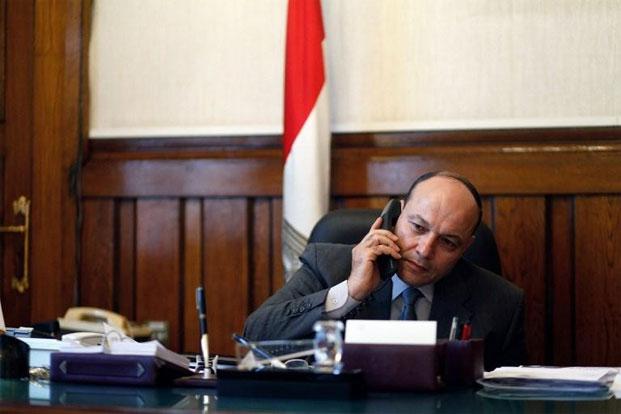CAIRO: Starting from a low base, Egypt’s securities market has picked up speed and performed well in light of the country’s positive economic indicators and liberalization process.
“Egypt is becoming more hospitable to investment in general. We’ve seen foreign direct investments growing dramatically reflecting investors’ interest in the country whether in terms of portfolio investment or real-estate, said Omar Radwan, vice president and head of regional asset management at HC Securities and Investment firm.
“If we take a more global picture, Egypt is integrating within the Middle East and North Africa region, which is currently becoming more and more important, forming a [strong] economic block in the world.
The government has recently proved to be pro-business whereby change was witnessed in institutions such as the Central Bank of Egypt, General Authority for Investment and Free Zones, the Capital Market Authority (CMA), and state-run commercial banks.
Such changes are proven to increase the level of confidence in the securities market and reduce uncertainty, the greatest enemy of any investor.
In fact, Radwan believes that the current drive towards liberalization and privatization of the economy will further drive the securities market. “What can threaten the market is if something happens that changes [or reverses] the direction adopted by the government.
He does not perceive foreign investors who venture into the local securities market as a threat. “Foreign investors form less than 15 percent of the market in terms of daily trading. However, there is a perception that foreign investors drive the market. That is only a perception and not a fact.
The fact is, he continues, Egypt is integrating within the global economy due to its current reform policies, which make the local market more open to global dynamism.
The recent crunch in the United States’ mortgage market adversely affected the Egyptian securities market, Radwan explained, because many of the players – local and foreign – that dominate the local market were also players in international markets.
“The turmoil in the real estate market in the US caused a state of flight to safety; therefore, investors had to leave emerging markets and direct their investments to more developed ones.
What weakens Egypt’s securities market, according to Radwan, is that it has few participants, as is the case in all emerging markets.
“Participants are few, whether service providers or sophisticated/institutional investors. The fact that the retail sector constitutes 75-80 percent of daily trading volumes means that [trading] is not sophisticated enough.
Out of over 600 companies listed on the bourse, only 50 are actively traded, which further weakens the market. “That means that a big majority of stocks is not being traded, which leaves room for a certain degree of manipulation as well as a lack of information dissemination.
Having such a large number of listed companies, he added, can lead the CMA to overlook important stocks that move the market.
“The Case30 constituents are the ones that should matter the most, and maybe they [lack] special attention.
Moreover, because there are very few analysts that cover the securities market, trading is not based on any prior research, which leaves room for rumors and misinformation to manipulate the market, Radwan explained.
“Lack of public awareness is another problem that puts pressure on market players, services providers, and regulators.
He suggested introducing a learning tool that educates the public on means as well as benefits of trading in the stock market.
In essence, he explained, the merit of investing in the stock market is to allow a regular investor to put in a few pounds in a company. “I can’t establish Omar Effendi, for example, but I can buy stock in it.
So, what the public needs to know is that the stock market is an “attractive investment vehicle that can yield much higher returns than traditional bank deposits. On the other hand, it carries “higher risks.
“Stock trading [attracts] people who are more open to risk and enables them to diversify their investment portfolios.
HC provides courses to educate journalists and media personnel about the basics of the securities market. “Media hype can sometimes [negatively] affect the most educated as well as [businessmen].
One way to deal with the public’s lack of knowledge of the securities market is to invest through financial institutions rather than venturing into the market single-handedly.
“One of the biggest tools that is extremely underutilized in Egypt is pension funds and saving schemes. With pension schemes, for example, [an employee] invests from day one part of his/her salary in the stock market, he explained.
“It is not part of the culture yet, but hopefully this will change with the restructuring of the insurance sector.
To deter insider information, regulations and penalties should be stricter. Currently, the CMA monitors unjustified market moves and imposes fines or even halts suspicious transactions. However, since such penalties fail to deter perpetrators, several analysts have called for prison sentences.
On the bright side, Radwan is optimistic, and predicts that Egypt’s securities market will develop further and mature.
“As the securities market develops, it introduces new products. And as it matures, it attracts more sophisticated investors that will help stabilize and deepen the market’s maturity, he said.
“For example, we expect [change] in mutual fund regulations, which is very important because it invites more sophisticated investors to enter the market.
Radwan is confident that the domestic market is geared to deal with new tools and vehicles available in developed markets such as short-selling and Islamic finance.
“The legal framework is there. What we’re waiting for is a press of a button to allow it to happen.
As for new indices that are projected to enter the market such as Case45 and Case100, Radwan expects them to be more useful once index-tracking funds are introduced, allowing several investment sectors to have their own tracking funds.
